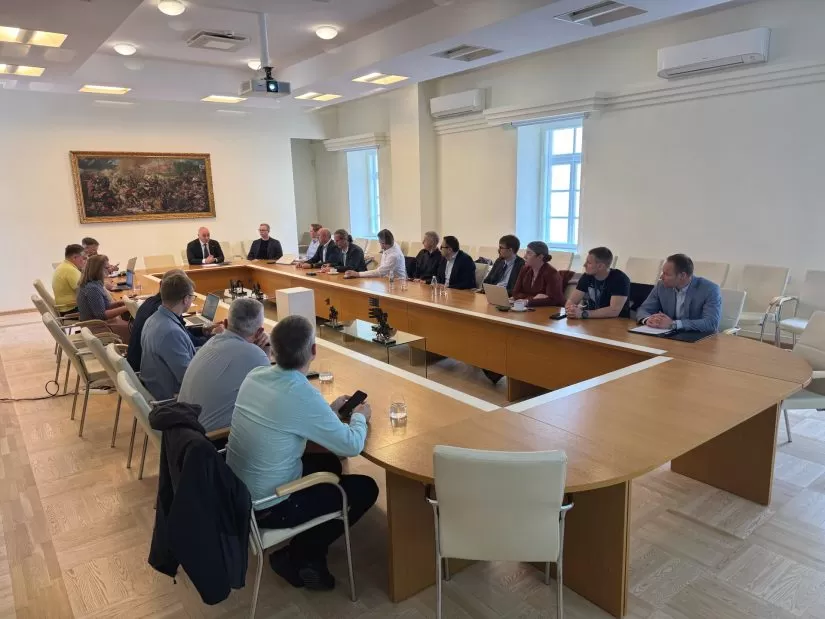BAKU, Azerbaijan, June 25. The Ministry of National Defense has hosted the inaugural meeting of Lithuania’s National Coordination Working Group on Post-Quantum Cryptography Transition, marking a significant step in preparing the country for the cybersecurity challenges posed by quantum computing, Trend reports.
The working group brings together experts from 17 different institutions and sectors, uniting public and private stakeholders to ensure a secure and coordinated shift to quantum-resistant cryptographic solutions.
The group’s strategic mission is to develop a national transition plan by the end of the third quarter of 2026. This comprehensive plan will serve as a foundational document to guide Lithuania in adopting next-generation encryption methods capable of withstanding emerging quantum-enabled cyber threats.
“You are embarking on a challenging but vital mission — to help
Lithuania make a strategic and seamless transition to resilient
cryptographic solutions,” said Vice Minister of National Defense
Tomas Godliauskas during the opening session.
“This is essential to strengthening the country’s cybersecurity
posture, protecting our most critical information systems from
quantum threats, and ensuring public trust in digital government
services.”
The upcoming national plan will address legal, technological, organizational, and inter-agency coordination measures. These components will provide a clear roadmap for institutions to transition effectively to post-quantum cryptographic systems, which are designed to remain secure even in the face of advanced quantum computing capabilities.
This initiative reflects Lithuania’s broader commitment to cybersecurity resilience, digital sovereignty, and readiness for the rapidly evolving technological landscape. As quantum computing moves closer to practical application, countries around the world are beginning to prepare their digital infrastructure accordingly — and Lithuania aims to be among the leaders in that transition.







